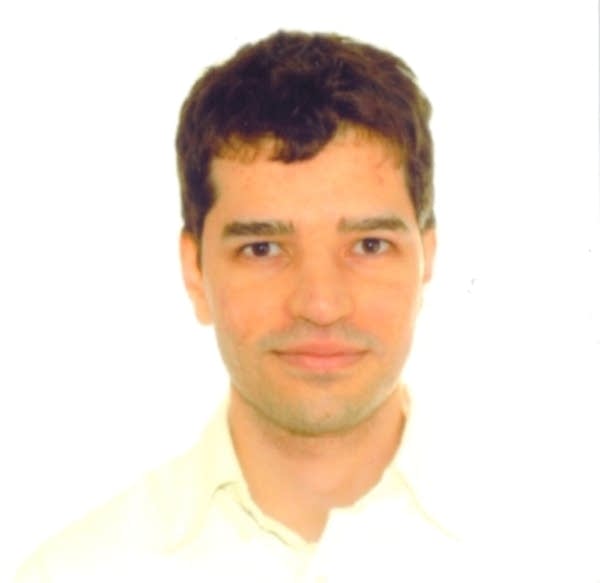Stimulant drinks will give you energy, but they may also get you a lecture from the dentist
Go Deeper.
Create an account or log in to save stories.
Like this?
Thanks for liking this story! We have added it to a list of your favorite stories.

Hani Hamdan lives in Burnsville and practices dentistry in Lakeville, Minn. He is a contributor and editor of Engagemn.com and a source in MPR's Public Insight Network.
I was watching a Web video the other day when it was interrupted by an ad. The ad started with a problem: people looking tired and sleepy at work. Then it offered the solution: an over-the-counter stimulant that works "faster and better than coffee."
The newest major culprits behind cavities in the patients I see in my dental practice are sports drinks and the so-called "energy drinks," which are designed to provide an optimized concoction of stimulants not strong enough to be called cocaine, and loads of cavity-causing sugar.
Naturally, the sugar part gives my hygienist and me the perfect opportunity to give you a lecture in the dental chair (we lecture nicely). But I also take issue with the idea that the solution to our fatigue and sleepiness at work is a liquid zap to our nervous systems. As study after study shows, what Americans need is more sleep and better sleep. High-efficiency stimulants seem to do the opposite of helping in that arena.
Turn Up Your Support
MPR News helps you turn down the noise and build shared understanding. Turn up your support for this public resource and keep trusted journalism accessible to all.
The ad suggests that you can be back to your absolutely normal self after a sip of stimulant slaps your whiney, sleep-deprived brain back to its senses, adding another few hours of normal productivity to your work schedule.
But doctors know that being sleep deprived will alter your sharpness, memory and decision-making abilities no matter how much stimulant you have in your system. The ad's implied promise is misleading, because if your brain needs sleep, it will not function at its best until it gets that one thing: sleep.
The dangers posed by sleep-deprived people driving or operating machinery are well known. Imagine what might happen if truck drivers, for example, cannot detect that they need sleep because an energy drink is masking their symptoms.
Another particularly dangerous way of consuming energy drinks is to mix them with alcoholic beverages, because it causes drunk people to not realize how drunk they are.
The long-term possible effects of sleep deprivation also include weight gain, heart disease, diabetes and depression. Adding an energy drink to this debacle doesn't ring "solution" to me, and it may well come with a set of withdrawal symptoms if you don't get your caffeine fix for the day.
Shortly after I started working full time, I remember, I started to skimp on sleep and make it up on weekends. It would get worse during Minnesota summers, with the short nights. This took a toll on me physically and mentally. I didn't get my health back until I started taking my sleep seriously. For me, that meant allocating and abiding by the number of hours I need every day to sleep in a comfortable bed with no noise or light.
What I needed was sleep. Not an energy drink. And certainly not a lecture from a dentist.



